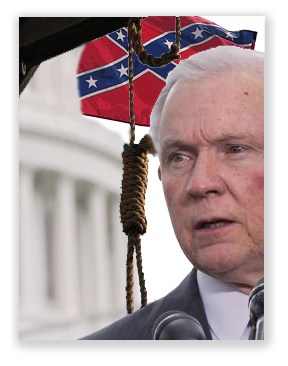We post news and comment on federal criminal justice issues, focused primarily on trial and post-conviction matters, legislative initiatives, and sentencing issues.

IT’S DÉJÀ VU ALL OVER AGAIN AT SENTENCING COMMISSION
 Federal inmates who felt like the U.S. Sentencing Commission left them at the altar last April when the much-ballyhooed First Offender proposal disappeared from the amendments list without so much as a squeak ought to be forgiven for thinking the Commission should have released its set of proposed priorities for 2018-19 amendment cycle last week to the tune of the Who’s “Won’t Get Fooled Again.”
Federal inmates who felt like the U.S. Sentencing Commission left them at the altar last April when the much-ballyhooed First Offender proposal disappeared from the amendments list without so much as a squeak ought to be forgiven for thinking the Commission should have released its set of proposed priorities for 2018-19 amendment cycle last week to the tune of the Who’s “Won’t Get Fooled Again.”
The Commission begins each amendment year by proposing priorities, which the public may comment on prior to adoption, either arguing against the proposals or even suggesting other priorities the commentators believe the Commission overlooked. Last year, the nonprofit prison group Prisology carried public participation in the USSC priorities inquiry to a new level, causing a flood of over 80,000 comments proposing that the USSC adopt a newer, kinder sentencing table.
In an action (or perhaps inaction) that spoke volumes about the contempt the Commission has for the agency rule making process, the Commission not only failed to adopt Prisology’s modest proposal that revisiting the 30-year old sentencing table, it did so without so much as a single comment about having received 90,000 public comments on a single topic. To be sure, the Sentencing Commission, being a judicial-branch agency and not an executive-branch agency, need not comply with the Administrative Procedure Act, but a layperson (and even a lawyer) could be forgiven for asking what the point is of seeking public participation only to ignore it so completely as not even to acknowledge in a footnote that it ever happened?
 One of last year’s priorities that did get adopted related to a proposed reduction in sentence levels to recognize that there are Criminal History I defendants and then there are Criminal History I defendants. Some Crim I people have a misdemeanor history that garners them one point, still little enough to fall in Crim I (the best criminal history category to land in). Other Crim I people may have done hard time, but did it so long ago that their incarceration ended more than 15 years ago. A few Crim I people have a virginal criminal history, never so much as a speeding ticket.
One of last year’s priorities that did get adopted related to a proposed reduction in sentence levels to recognize that there are Criminal History I defendants and then there are Criminal History I defendants. Some Crim I people have a misdemeanor history that garners them one point, still little enough to fall in Crim I (the best criminal history category to land in). Other Crim I people may have done hard time, but did it so long ago that their incarceration ended more than 15 years ago. A few Crim I people have a virginal criminal history, never so much as a speeding ticket.
The USSC proposed to reward the virgins with not just the Criminal History I category, but an extra point or two off their Guidelines offense level score. The suggestion, called the First Offender proposal, made the priorities cut, then even the proposed proposed-amendments cut, only to disappear without a trace when the amendments to the 2018 Guidelines were adopted three months ago.
Unsurprisingly, the new priorities make no reference to the late First Offender proposal, either. It has become the Sentencing Commission version of George Orwell’s “unperson”: not only dead, but abolished, with any identifiable reference to it scrubbed from the record.
Nevertheless, if you are among the dozen or so people in America who think that public comment on the USSC’s priorities exercise will amount to anything more than flatulence in a hurricane, here are the more interesting proposed priorities:
The Commission proposes considering how to reduce costs of incarceration and overcapacity of prisons by
• looking at the structure of the guidelines post-Booker to promote proportionality and reducing sentencing disparities, and to account appropriately for the defendant’s role, culpability, and relevant conduct;
• continuing to work with Congress to implement its recommendations to revise the career offender directive to focus on offenders who have committed at least one “crime of violence” and mandatory minimum penalties (including mandatory stacking of 18 USC 924(c) penalties; and
• considering possible amendments to the commentary of 1B1.10 (Reduction in Term of Imprisonment as a Result of Amended Guideline Range (Policy Statement)) in light of Koons v. United States, study of the operation of 5H1.6 (Family Ties and Responsibilities (Policy Statement)) with respect to the loss of caretaking or financial support of minors; and study of whether 1B1.13 (compassionate release guideline) effectively encourages the BOP Director to file a motion for compassionate release when “extraordinary and compelling reasons” exist.
Public comments are due by August 10, 2018. After that, the Commission will meet August 23 to select its priorities for the coming cycle. Don’t bet on the final list deviating from the proposed list by as much as a jot or a tittle.
But if you want to comment, knock yourselves out.
U.S. Sentencing Commission, Proposed Priorities for Amendment Cycle (June 28, 2018)
– Thomas L. Root





